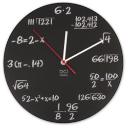Yahoo Answers is shutting down on May 4th, 2021 (Eastern Time) and the Yahoo Answers website is now in read-only mode. There will be no changes to other Yahoo properties or services, or your Yahoo account. You can find more information about the Yahoo Answers shutdown and how to download your data on this help page.
Trending News
When does 2^m - 2^n divide 3^m - 3^n?
Find all pairs of positive integers such that m > n and 2^m - 2^n divides 3^m - 3^n.
6 Answers
- JBLv 71 decade agoFavorite Answer
I think the only such pairs [m,n] are [2, 1], [3, 1], [5, 1], [4, 2], [6, 2], [8, 2], [14, 2], [5, 3], [7, 3], [9, 3], [15, 3], [8, 4], [16, 4]. At any rate these all work and my computer tells me there are no more with 1001>m>n. If I think of a proof that there are no more I will return -- but don't hold your breath.
----------------------
EDIT:
I just saw Doctor D little's comment below. Unfortunately it is not correct, because the denominator can split its primes between the two numerators, for example when m=5 and n=1, 3^m - 3^n = 240, 2^m - 2^n = 30, so 30 divides 240 but 3^n/(2^(m-n)-1) = 3/15 = 1/5 not an integer, i.e. (2^(m-n)-1) does not divide 3^n.
There may still be some usefulness in Doctor D little's comment, but anyone trying to use it needs to be aware that as it stands it is not correct.
- Dr DLv 71 decade ago
(3^m - 3^n) / (2^m - 2^n)
= (3^n / 2^n) * [3^(m-n) - 1] / [2^(m-n) - 1]
In order for this to be an integer, and noting the fact that 3^n and 2^n have no common prime factors, then
2^(m-n) - 1 must divide 3^n and
2^n must divide 3^(m-n) - 1
Not a complete answer, but maybe someone else can do something with this.
*EDIT*
Yes I realized that error. I'm just not sure as yet how to change it into a form that can actually solve the problem without trial and error.
- Anonymous5 years ago
properly you will never study something via having others do ur hw yet i can coach you....the 1st one is 28n^6...it is what you do once you have an exponent exterior a parenthesis you upload it to notwithstanding is interior (x^2)^3= x^5...make experience? and in case you had this (2x^2)^3 (sqaure 2 and then upload 2 and 3!) so it equals 8x^5 with branch its an identical ingredient different than you subtract!
- Mugen is StrongLv 71 decade ago
(3^m - 3^n) / (2^m - 2^n)
= (3/2)^n * [3^(m-n) - 1] / [2^(m-n) - 1]
we know
a^p = a mod p , for prime p.
a^(p-1) = 1 mod p
a^(p-1) - 1 = 0 mod p
so that settles any prime factor within [3^(m-n) - 1] and [2^(m-n) - 1], because they share them.
that means, we need m - n = p - 1
m - n + 1 = prime p.
i'll came back when i can add some more.
because [3^(m-n) - 1] still need factors of 2 and [2^(m-n) - 1] factors of 3. but knashha said he'll be here, so all is well.
i checked and p is only up to 13. why is that so?
- Vikram PLv 51 decade ago
Interesting Question:
I tried to generalize solution set for (a^m - a^n) / (b^m - b^n),
(where a>b & m>n and a & b are prime / co-prime numbers)
Here goes few of the observations:
1) If a & b prime numbers then m-n+1 can only belong to set {2, 3, 4, 5, 6, 7, 9, 11, 13, 19, 27, 37, 53.....}
I have not come across any case where m-n+1 does not belong to above solution set but sequence may continue, who knows! This is also applicable if a & b are co-primes
2) Solution exists if only if "b" is one of the factor of (a+1) or
(a-1) I do not know why this happens but looks interesting!
3) Number of possible solutions depends upon how many times "b" appears as a factor of (a+1) or (a-1).
Thus elements in a solution set will be will be highest if "a+1" or
"a-1" is equal to b^x for some x
(Try taking a & b as 9 & 2 (Co-prime case), 17& 2 (Prime case) etc )
@ miryana kina:
Thus m-n+1 = p is not always true. :) but thanks for giving idea!
Since the original question is already answered I have posted only other relevant part as this may be useful to generalize the answer.
Source(s): PARI/GP Used Following program to find solution set & Excel to generalize the solution :) i=0;while(i<=100, i+=1; a=prime(i); b=prime(i+1); m=0; while(m<=10000, m+=1; n=0; while(n<m, n+=1; if(n == m, n+=1); if(floor((a^m - a^n) / (b^m - b^n)) == (a^m - a^n) / (b^m-b^n), write("myans.txt", m," , ",n))))) - Jun AgrudaLv 71 decade ago
= (2^m - 2^n)/(3^m - 3^n)
= 2/3
Answer: 2/3
Checking back to 2^m - 2n:
= 2/3(3^m - 3^n)
= 2^m - 2^n







